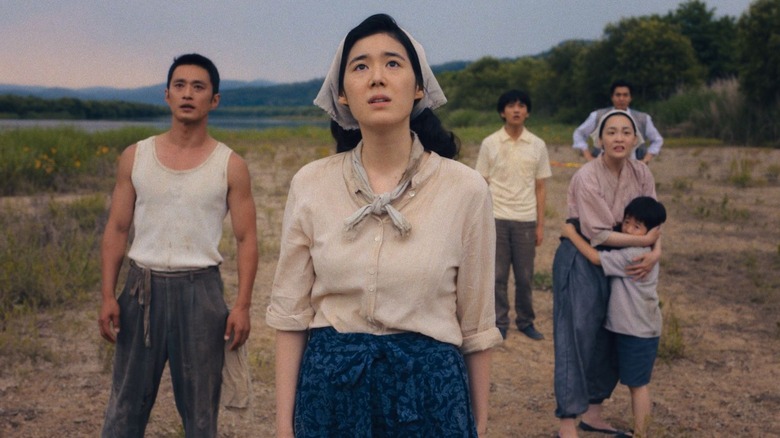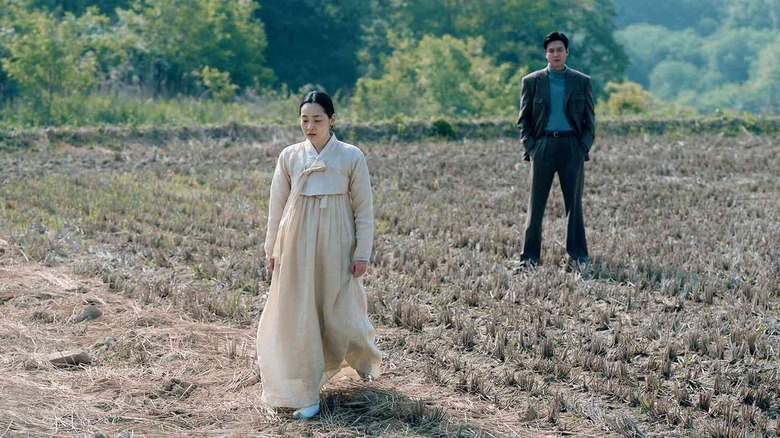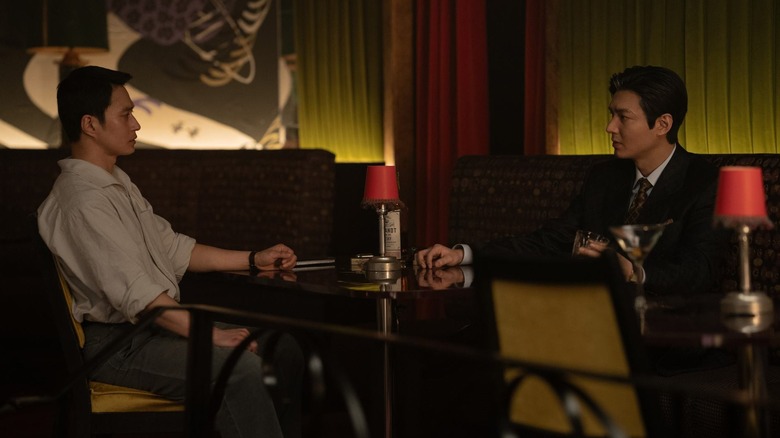Pachinko Season 2 Review: The Acclaimed Drama Is Back - But Disappointing
- When the family drama remains intimate, the season is every bit as good as the first
- The creators feel like they’re consciously trying to better the first season’s earthquake episode, and lose a lot of the magic in the spectacle
- Strays further into melodramatic territory than Season 1 did
Even as it maintained a sprawling, decades-spanning narrative, the first season of the AppleTV+ series "Pachinko" was an impressive achievement in condensing a novel which used a century of Japanese and Korean history as its backdrop. The key to this success was simple: it never let the weight of historical events take precedent over the quieter, multi-generational family drama. The Japanese occupation of Korea in the first half of the 20th century, and the lingering cultural tensions in the years that followed, helped shape and consolidate character dynamics, but they weren't the sole defining factor.
It was an informed study of anti-Korean prejudice all the way through to the late '80s, and how forced cultural assimilation did nothing to stem the tide of micro-aggressions immigrants in Japan faced for generations after the occupation ended. It couldn't be described as a dry "issues drama" either, with each of its narrative strands sprinkled with broad, sweeping melodrama, as families were both formed and torn apart by the tides of history that had turned against them.
More melodramatic than before
The one exception in its approach to leave major events in the background came via the lauded stand-alone episode "Chapter Seven" — directed by Kogonada, the mastermind behind the underrated "After Yang" — which aimed to flesh out the backstory of enigmatic fish merchant Hansu (Lee Min-ho). Departing from the source material, which never dove into the specificities of his private life beyond his fractured relationship with Sunja (Kim Min-ha), he was given an origin story-of-sorts placed against the backdrop of the devastating Great Kanto Earthquake of 1923. It was a warmly received installment, and its narrative approach has clearly helped define the direction of the new season, largely to its detriment.
In several episodes in the second season, characters are overshadowed by the weight of historical events around them, with individual installments often jumping years at a time as if to tick off multiple milestones in one go. There's still a grounded family drama examining cultural tensions at the heart of the series, but its impact is blunted this time due to how overwrought the historical drama has become around it, leaning further into melodramatic impulses in a way that proves misguided. By the time the season ends with a slow, haunting cover of Coldplay's "Viva La Vida," it becomes clear we've strayed further into "Grey's Anatomy" territory than necessary, sacrificing credibility for the sake of cheap emotional impact.
This time around, the earlier narrative spans the entirety of the 1939-1962 period documented in the novel's second part, with the later narrative spanning a few months in 1989. In the latter case, we pick up with Solomon (Jin Ha) following his firing from a high-ranking job in the first season, after a last-minute insistence that an elderly Korean woman shouldn't abandon her heritage and sign away her home to Japanese land developers. Now, he's scrambling to find investors for a new venture, as without a job, his U.S. visa will be imminently revoked — and, due to sloppy writing, a further time limit has been placed on his efforts by various characters ominously warning of an impending financial crash. Japan's "lost decade" didn't gather steam until the spring of 1991, but the plot is driven via these anxieties of a stock market crash, never quite selling the human stakes of Solomon's efforts as every character speaks with the foresight only a screenwriter could afford them.
It's best in its quietest moments
It's a shame, because the family drama in the 1989 section is the richest of Season 2, connecting three different character studies which share a base need to shake off the weighty expectations that are either self-imposed or subtly enforced by the family. Solomon's continued need to downplay his Korean heritage in a workplace where he's not-so-silently judged based on it leads to several affecting moments where his personal and professional worlds collide. His grandmother Sunja (played in the later sections by "Minari" star Youn Yuh-jung) has an even more affecting storyline, which gradually blossoms into an examination of how two people placed on opposing sides of a conflict can co-exist peacefully, and whether friendship could ever be possible once their diametrically opposed histories are known.
These are storylines which recapture the same quiet power as the first season's most impactful moments. Familiar historical events are placed firmly in the background as the series embarks on a richer interrogation of the continued fallout from them, subtly highlighting how it shapes both cultural identities and false cultural perceptions for generations after the fact. This might be why (even though it remains faithful to the source material by doing so) marrying this intimate character drama with tales from the criminal underworld, edging into territory not entirely dissimilar from a stripped-down conspiracy thriller, feels less than satisfying. We know from the first season that this adaptation can jump between eras with ease. The more heightened storylines it must tackle this time around show that it hasn't quite perfected jumping between genres just yet.
This is far more pronounced during its early 20th-century sections, where a story about life during wartime struggles to find its footing. The family has been relocated to the countryside, away from the regular bombings that have devastated the cities, but the series still attempts to contrast this quieter story — which finds new ways to add depth to the portrayals of Japanese-Korean relationships during this period, for characters of multiple generations — with what's happening in the eye of the storm. "Pachinko" is a series far better at examining the lingering, largely overlooked cultural tensions that arise following major tragedies, and at its least interesting when dramatizing events as they happened. This second season aims to be far grander in scale than the first outing, but never finds the right balance of small-scale character drama and expansive historical recreation as the first season's earthquake episode. You can feel the creative team consciously trying to replicate that success and coming up short; that episode succeeded because of how it foregrounded the character drama, which feels less assured in the face of Earth-shattering events this time around.
The second season of "Pachinko" is a considerable step down from the first, but there are still frequent glimmers of what made the previous season such a quietly moving gem.
Episode 1 of "Pachinko" Season 2 premieres on Apple TV+ on August 23, with a new episode dropping every Friday through October 11.


